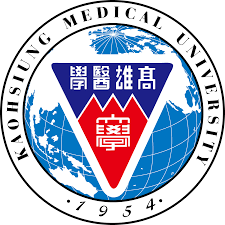I am a clinician-scientist dedicated to advancing the fields of gastroenterology and oncology, with a particular focus on esophageal and gastric cancers. Currently, I serve as the Associate Dean of the College of Medicine at Kaohsiung Medical University (KMU) and the Director of the Digestive Disease Center at KMU Hospital (KMUH). As the Associate Executive Director of the Cancer Research Center at KMU, I aim to bridge clinical practice and research, driving innovation to improve patient outcomes.
I have held academic appointments at KMU since 2012, progressing from Assistant Professor to Professor in the Department of Medicine. My clinical journey began in 2006 as an Attending Physician in Gastroenterology and Internal Medicine at KMUH, where I now lead the Esophageal Cancer Group, a role I have held since 2015. Beyond these roles, I contribute to the broader medical community as a Council Member of the Digestive Endoscopy Society of Taiwan and the Taiwan Neuroendocrine Tumor Society, as well as a Supervisor of the Taiwan Gastric Cancer Society. Recently, I joined the Drug Safety Advisory Committee for Taiwan’s Food and Drug Administration.
My work has been recognized both nationally and internationally, earning prestigious accolades such as the American Society of Clinical Oncology (ASCO) Merit Award, the National Innovation Award for developing a smart endoscope medical display, and the Symbol of National Quality for innovative multidisciplinary esophageal cancer care. Additionally, I am proud to have received the Outstanding Research Award from KMU multiple times (2011–2022) and the Outstanding Teaching Award in 2019.
Through these roles and accomplishments, I strive to contribute meaningfully to the advancement of cancer research and clinical practice, with the ultimate goal of improving the quality of life and outcomes for patients battling esophageal and gastric cancers.
Our laboratory is dedicated to pioneering research and clinical advancements in the field of esophageal and gastric cancers, with a particular focus on esophageal squamous cell carcinoma (ESCC). We aim to bridge the gap between basic science and clinical application through multidisciplinary and translational approaches. With expertise in early detection, therapeutic optimization, biomarker discovery, and innovative treatment development, we strive to improve outcomes and quality of life for patients battling these challenging malignancies.
Our research spans several key domains:
- Screening and Surveillance: Developing cost-effective screening programs and endoscopic surveillance protocols for high-risk populations, including patients with head and neck cancers, to enhance early detection and intervention.
- Therapeutic Innovation: Evaluating the efficacy of cutting-edge treatments, including immunotherapy, chemoradiotherapy, and advanced endoscopic techniques, while contributing to international clinical trials exploring novel therapeutic agents.
- Biomarker Discovery: Identifying and validating biomarkers, such as elafin and immune-related markers, to guide prognosis and personalize therapeutic strategies.
- Risk Factor Analysis: Investigating the role of comorbidities, lifestyle factors, and physiological indicators in cancer development and progression to inform preventive strategies.
Our team collaborates with international and national research consortia, serving as principal investigators in numerous clinical trials and multidisciplinary projects. Leveraging state-of-the-art technologies, including hyperspectral imaging and artificial intelligence, we aim to revolutionize cancer diagnostics and treatment.
In my research, I have focused on advancing the understanding and management of esophageal and gastric cancers, particularly esophageal squamous cell carcinoma (ESCC). I have explored strategies for early detection and surveillance, including cost-effective esophageal cancer screening programs and endoscopic monitoring for high-risk populations, such as patients with head and neck cancers. My work on treatment optimization includes evaluating the outcomes of multimodal therapies, such as neoadjuvant chemoradiotherapy, advanced endoscopic techniques, and innovative stent placements for improving patient care.
I have also investigated the role of prognostic biomarkers, including elafin and PD-L1/CD8 expression changes, to predict patient outcomes and personalize treatment. My research extends into novel therapeutic approaches, participating in immunotherapy trials using agents like nivolumab, bispecific antibodies targeting Claudin 18.2, and therapeutic cancer vaccines. Additionally, I have studied the impact of risk factors, such as substance use, sarcopenia, and cardiovascular indicators, on disease progression and treatment responses.
To enhance early detection, I have integrated advanced technologies, such as hyperspectral imaging and artificial intelligence, into clinical practice. As a principal investigator in national and international clinical trials, I have contributed to evaluating cutting-edge therapies and combinations for esophageal and gastric cancers. My cross-disciplinary initiatives emphasize improving patient quality of life through nutritional support, personalized treatment plans, and innovative interventions. Collectively, my research aims to advance the field by improving early detection, treatment outcomes, and survival for patients facing these challenging cancers.
| 2009 | Student Distinguish Award in Research, Graduate Institute of Medicine, KMU, Taiwan |
| 2011 | Excellent Poster Award, the Gastroenterological Society of Taiwan |
| 2014 | Young Investigator Award, 7th General Assembly and International Conference of Asian Pacific Organization for Cancer Prevention |
| 2015 | American Society of Clinical Oncology (ASCO) Merit Award, 2015 Gastrointestinal Cancer Symposium |
| 2015 | Excellent Poster Award in Original Research, Annual meeting of Taiwan Society of Internal Medicine |
| 2018 | National Sun Yat-sen University and Kaohsiung Medical University Collaborative Research Outstanding Scholar Award |
| 2018 | Symbol of National Quality (SNQ) for “Novel multidisciplinary care and management for esophageal cancer” |
| 2019 | 2018 Outstanding Teaching Award, KMU |
| 2020 | The 17th National Innovation Award in the Academic research category for "Smart Endoscope Medical Display” |
| 2011-2022 | Outstanding Research Award, KMU |
| National Taiwan University, Taiwan | MD | 1994-2001 | Medicine |
| Graduate Institute of Medicine, Kaohsiung Medical University (KMU), Taiwan | Ph.D | 2005-2008 | Medicine |
| Harvard School of Public Health, Boston, MA | 2009-2010 | Visiting Scientist in Occupational Health |
